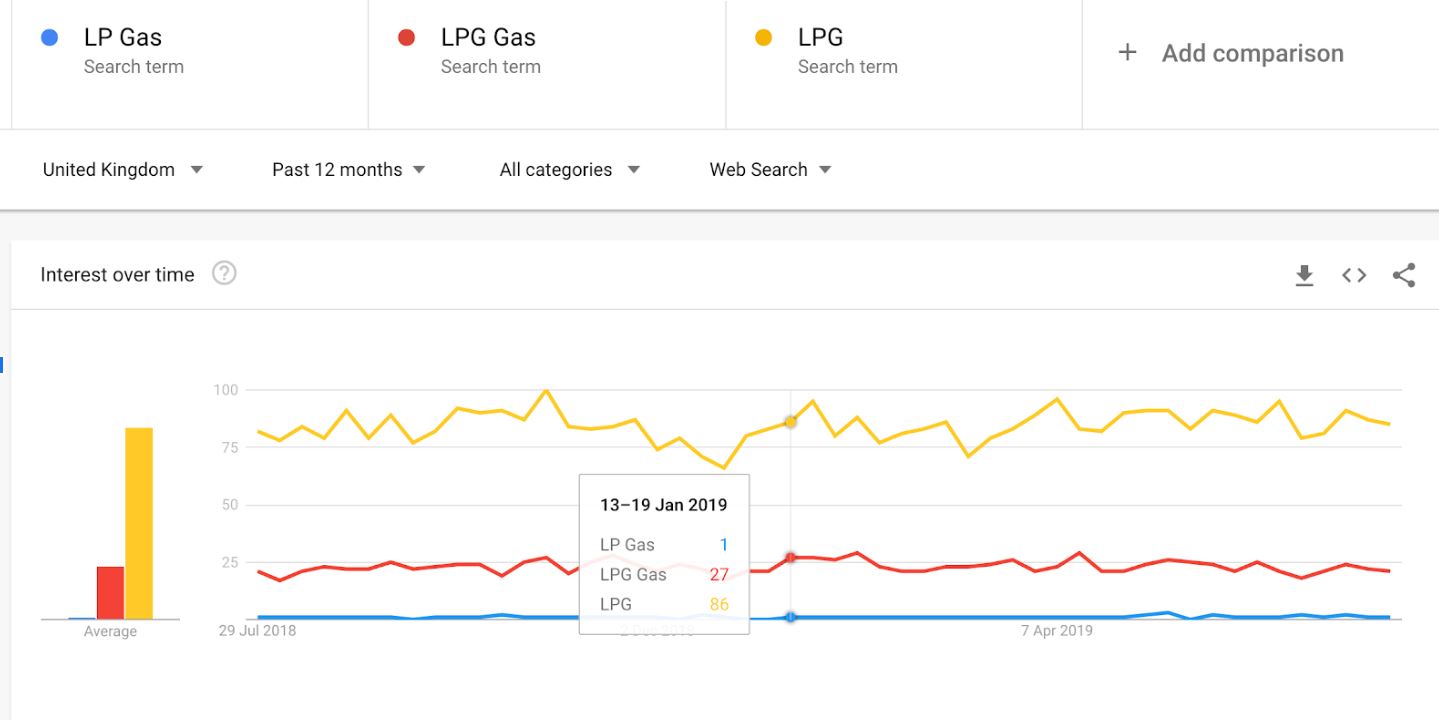What is an SEO Campaign?

Your SEO Campaign
Search Engine Optimisation, or SEO, is one of the most misunderstood and missold areas in marketing let alone digital marketing. In this article, we aim to explain just what is an SEO campaign, what it can achieve and in what time frame.
We’ll explain where to get information and how to interpret that information. Most importantly, we’ll cover the most effective philosophy behind SEO. The one that is pretty much guaranteed to succeed and will keep you safe from changes in the way that search engines rank websites. All of this in plain English. If you read something that uses jargon you’re not familiar with just leave a comment and we’ll edit the article.
Who can you trust with SEO?
We have been working with SEO since before Google appeared on computer screens. One thing that has remained disturbingly constant is a less than stellar performance from SEO professionals. Sometimes this is simply due to a mismatch between expectations and budget, other times it’s a lack of experience from the SEO service provider. We came across a site recently that had a line of code at the beginning of each page telling search engines not to index the page. Great for a site in development, not so good for a live ecommerce site!
Talk to us about SEO
Fill out the form below or call us on
01789 491610
It’s always a good idea to do your own research so that you can get an idea of what your SEO partner should be doing and the list of reputable sources of information has become quite comprehensive. We’ve listed below a number of SEO information sites that, while not being independent, can be trusted to point you in the right direction:
Google – let’s face it, these guys have just about the only game in town when it comes to search. They set the rules and are quite happy to let you know what they are. All you have to do is read them and follow them.
Moz – not only produce some excellent tools to enhance your SEO they have produced a large reference library of blog posts and articles.
AlphaQuad – well it would be rude not to mention the authors of this fine article (us).
SEMrush – a rival to Moz who give some great advice.
Brian Dean – good, sound advice from a real SEO pro.
Where to start with SEO?
Every great journey starts with a single step and every SEO campaign starts with a single keyword. The absolute core of any SEO work is the humble keyword. Not just any keyword but a keyword fresh from the keyboards of all those potential customers.
People are looking for you, your products or your services and they are looking for you now. Most of them who don’t know about you will be researching using Google. You’ve seen the figures, 59 squillion searches per nanosecond and if only 10% are looking for you… you’ll be able to spend the profits on a degree in statistics and how to interpret daft numbers.
The reality is that people do tend to use Google to search for just about anything but the numbers reduce very quickly when you focus right in on your offering. A sense of perspective is needed with SEO and an expectation focussed on some real numbers rather than every visitor to Google.
The one thing you can rely on is that Google is the no.1 search engine by a very wide margin and most of those looking for what you offer will end up on Google sooner or later. This is why it\’s a good idea to feed Google with what it needs to be able to match their search with your information.
Enter the aforementioned humble keyword. All you really need to do to start with is to make sure you know what people are looking for and the words they will be using. Then place those words where they should be on your website… more of this bit later.
So, there we were starting an SEO campaign for Calor Gas and their main requested keywords were LP Gas, LP Gas Cylinders and Calor Cylinders. You may well have spotted an issue already, we did. The ‘correct’ use was LP Gas because LPG stands for ‘Liquid Petroleum Gas’ and you can’t have ‘Liquid Petroleum Gas Gas’. More than this, most people just call it LPG. A quick look at the handy tool Google Trends illustrates the reality:

The next issue was that while the Calor marketing department and all of their colleagues spoke of ‘cylinders’, the rest of the UK preferred the completely inaccurate term ‘bottles’.

This situation is far from unique to Calor and most clients we work with have an internal way of describing products and services that differ from the descriptions used by their clients.
So step one is to dispose of your preconceptions, do some research, throw around some alternatives and use some tools to help you work out just what people are looking for and what they are calling it.
Great tools for this are:
Google search results description
Google trends link and description
Moz keyword explorer link and description
Google Ads PPC keyword tool
Do I need a new website for SEO?
Occasionally we see some websites that just need to be put out of their misery. It’s the kindest thing! For most, however, we’d strongly advise against making such major changes just for an SEO campaign. This is when you need to be experimenting with keywords, sentences, paragraphs, page structure, site architecture and all that stuff you learned in English lessons but didn’t realise it could be good for SEO.
Our best gains often come from some very simple changes to page content that once you know some ground rules are, well, a bit on the obvious side. Here are a few to illustrate just how easy it can be.
What are the easiest SEO techniques?
First, remember that Google is trying to understand what your website and pages are all about. It only knows this by what you put on those pages (and a couple of other things, but more of those later). There are key places that are really important for SEO:
- Meta title (behind the scenes in your page code)
- Meta description (also in your pages hidden code)
- H1 tags (what Google sees as the theme of the page – ‘H’ stands for ‘heading’)
- H2 to H4 tags (these give your content structure)
- Words close to the beginning of paragraphs
There are a bunch more but these are some of the key ones.
So pause and ask yourself the question ‘Is my most important keyword/phrase found in most of these places on my home page?’ If not, you may want to make a few changes.
If your home page starts with ‘Welcome to…’ hang your very polite head in shame and ring us on 01789 491610. We won’t judge!
How many keywords should I choose?
In any SEO campaign, it’s important not to overextend yourself too early on. You’ll just end up setting targets that you don’t have time for or you can’t afford to pay for. Research and pick around 20 keywords/phrases that don’t include your brand name. If you are not ranking in the top 3 for your brand name you need to ring us on 01789 491610… something is badly wrong!
You should try to rank one page for one keyword/phrase to start with by putting that keyword/phrase in all those important little places mentioned above.
How do I know if my first SEO campaign is working?
You’re going to get this wrong to start with. Sorry, but everyone does!
You’ll make the changes and diligently check to see if you are going up the ranks and you will be… because you are checking… and Google knows what websites you are looking at. In this case, your own website and your activity pushes it up the ranks for your searches. No-one else\’s, just yours.
You may be keeping an eye on those pesky competitors and Google sees this and gives them a boost, for your search results, and no-one else\’s. You really have no idea what the reality is for your potential customer or what they are seeing. It’s a really great way to get your head around Heizenberg’s Uncertainty Principle if you have nothing much better to do with your time.
A simple and mostly accurate solution = If you are using Google Chrome as a browser you could use an ‘incognito window’ (top right by clicking on three dots) which isn’t impacted by your browsing history or location. This gives a better picture but we’d recommend using a tool like Moz which completely anonymises your search and can automate checking on rankings. If you don’t fancy paying for a full Moz licence just let us know and we can add you to ours and send you interpreted monthly reports for a fraction of the cost.
You’ll now have a set of reports showing how far your site has gone up the ranks and this is where you’ll get your first taste of SEO reality. It’s unlikely that you’ll jump straight to no.1 for any even halfway competitive keyword/phrase. You should have jumped up a few places, even many places but you really are aiming at first the top 10 positions, then the top 5 and finally the top 3. SEO has these ‘tipping points’ where you’ll go from very few visitors coming from Google to a tsunami (depending on how niche your keyword/phrase is the tsunami might be a little ripple).
This is one of the hardest things to accept with SEO. It takes time, it’s supposed to take time. What we’ve just written is to whet your appetite and show you that things can improve using some very simple techniques… but this is only the start.
Another easy SEO technique - ‘the homepage advantage’
If you want a simple way to get a quick boost in your rankings you should consider the homepage advantage. It’s not a good long term technique but it will give you some confidence. All you need to do is add content to your homepage featuring your keyword/phrase as a subheading followed by a related paragraph of content. This paragraph should link to further content within your site.
That’s it. As long as your site has been around for a while you’ll see an immediate lift in rankings for all keyword/phrases on your homepage. The downside is that it’s better to have people go straight to full pages of relevant content rather than homepage paragraphs. Eventually, you’ll need to use other techniques but this is a great way to get a bit of a boost.
Don’t worry about making your homepage too long. Just make sure that you have calls to action (things to click on) in the top section.
SEO Analytics
Services like Moz and SEMrush are great at telling you how well you are ranking but ranks are just a means to an end. What you really want are website visitors and this is where you’ll need to install Google Analytics. This is relatively easy but we’d recommend that you get some professional help as things can go a little wrong.
Once installed you should cover off a few basics including making sure that you filter out your own visits and any others from known sources that don’t contribute to actual customer visits (your IT or marketing agency for example). Doing this just requires that you take a trip over to https://www.whatismyip.com/ to find out what your internet address is. This can then be added via the Google Analytics admin panel (bottom left) as can those of your partners. It’s important to note that this setting isn’t a time machine and because Google doesn’t make your visitor IP addresses available your setting will only reflect data from when it was added.
Next you want to ignore the background noise of all those spiders, bots and crawlers that gather information from the web you’ll need to select the handy little option to, well…

P.S. It’s in ‘View Settings’.
Well done, you’ve set things up and are now the proud possessor of a remarkable amount of fairly unintelligible data. Even the bits that you think you understand may not be quite what you imagine them to be.
For example:
Session duration – the longer the better because it shows a level of interaction with your site… unless your site is difficult to navigate. Short means a lack of interaction… unless all they needed was your phone number or they went straight to the page they needed.
Bounce rate – leaving from the page you enter on is generally considered to be bad unless… the same examples as above.
Google Analytics is great but requires a fair degree of interpretation and certainly more than just a look at the figures you are initially presented with.
Google Data Studio and SEO
The good folk at Google listened to all the lost souls wading through page after page of website statistics and came up with the really excellent (and free) Google Data Studio. This swiss army knife for web stats can import data directly from Google Analytics along with many other sources. It then allows you to only display the information that you really want in the format that you want it.
It does take a little bit of setting up but once done you’ll have your own custom dashboard tailored you your specific needs. It really is well worth the effort.
When looking at your analytics results the important first measurement for SEO is Acquisition > All Traffic > Channels which will give you a good look at your visitors coming from search engines. The example below is from one of our own sites www.caravantalk.co.uk over a 30 day period.

Analytics by itself will not help your SEO but it will give you an idea of what is working and what isn’t. Taking things further than the very superficial account above will lead you into tracking conversions, downloads, sales and attributing these to acquisition channels and so much more.
Technical SEO
Now that you have all of the above in place it’s time to focus on the more technical side of SEO. Some would argue that this is where you need to start but we have found that the above gets you further, faster. We’re also going to focus on WordPress websites as these are by far the easiest to optimise for search engines for a variety of reasons.
Warning – this is probably where you need some help but for the brave here are the three top plugins to install and configure (other brands are available):
Yoast – not only is it excellent for SEO it also catches many technical issues
Hummingbird – these speed up your page speeds which is absolutely essential for mobile searches and important for the rest
Smush – excellent image compression
As a general rule of thumb always go for the paid version of every plugin you choose. You get support, features that are well worth paying for and… it’s just fair.
SEO Content Architecture
SEO is not about a collection of independent one-page websites, it’s about complex multi-page sites with all manner of content sections, product/service listings, case studies, downloads, functional elements and on. Search engines need to make sense of what your site is all about and while each web page needs to be optimised you also need to make sure that the structure of the site makes sense.
At the simplest level, you should make sure that where one page mentions a topic that is covered in more depth on another then you add a link within the text. You’ll need a site map, summary content on your home page with links, section pages with summary content and links. It really helps to keep similar content together in linked groups and subfolders (unless you are writing key content articles such as this one).
Your SEO campaign needs to reflect that you are not going to be able to write the best website possible at the first attempt. You need to plan out the content you are going to write over at least a 6 month period, possibly longer. You also need to be able to change these plans in line with what your analytics shows you.
Link Building for SEO
Internal content links are important but links from the rest of the world are essential for any but the most non-competitive niche searches. Most people confuse links to start with and embark on an exercise of linking to other websites. This is actually quite important and you should ideally be seen as a website that informs by collating the information that others provide. Much more important however is the affirmation you get by another website linking to you. The more high-quality sites that link to you the more important Google will see you as being.
Your SEO campaign should identify some easy wins to start with. The likes of directories, industry or sector associations and magazines. Hint: while you are doing this make sure that your NAP (name, address and postcode) are always identical.
More importantly, find ways of encouraging other sites to link to you because of the quality of your information. As always, aim to build the best possible website and then let others know about it.
Tools like Moz will not only tell you who is linking to you, they will also tell you who is linking to your competitors. Useful information? We think so!
SEO Campaign Philosophy
We mentioned this right at the beginning of this article and it is probably the most important aspect of any SEO campaign. Without it, you may be pulled to the dark side of SEO and suffer the quite real consequences.
Google controls the vast majority of UK searches and SEO effectively means GSEO ‘Google Search Engine Optimisation’. They set the rules that we have to follow and follow them we must.
Google beat its early competition (AltaVista, Lycos, Hotbot, Infoseek, Yahoo) by presenting people with the best results to their searches. Full stop. Google was better at interpreting imperfect websites and working out what they were all about. Little by little, influenced by Google’s hidden algorithms, the SEO industry started to follow Google’s lead and advice.
Google favours great websites as defined by the factors Google is looking for which sounds a little ‘big brother’ until you realise that Google is simply using its vast technology to present you with what you actually want. Google is a very reliable, independent and free judge of the quality of a website.
Philosophy – don’t try to fool Google or manipulate yourself to the best rankings, just write a good website and keep making it better. Your Google ranks will reflect how well you are doing this.
When SEO goes wrong
A number of years ago we were asked to complete an SEO consultancy exercise for a well-known insurance company. Very quickly we spotted that they had engaged an agency to ‘build links’ to their very successful website resulting in a mass of very poor quality links and a clear manipulation of Google’s algorithm.
We included this in our report and warned that something should immediately be done to remove the bad links. Before the company could action this measure they were picked up in a Google update and all their top 3 positions plummeted to sub 100. Their traffic crashed, online sales reduced to almost zero and they received a polite notification from Google that they had been penalised.
Needless to say that we were asked to step in and over the course of 12 months we were able to repair the damage with a solid, Google approved, SEO campaign.
The real danger with dodgy SEO tactics is not that they won’t work, they do. The problem comes when you get used to them working, buy in more stock, take on more staff, make more commitments… and then one morning the online sales aren’t there anymore. We have never seen any devious tactic work in the long term, not one!
SEO Campaigns conclusion
Hopefully the above has given you some food for thought and started you on the right lines with your planning of SEO campaigns. Probably the best advice that we can give is:
- Don\’t try to fool search engines
- Make it clear what each page is about
- Don\’t try to do it all, just start with something
- Measure your results
Best of luck and you know where we are…


